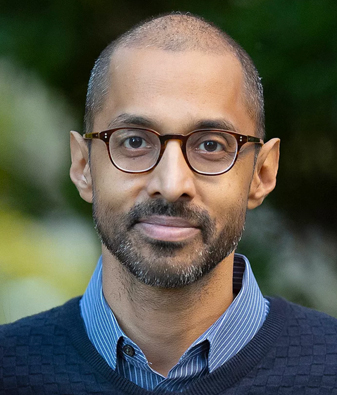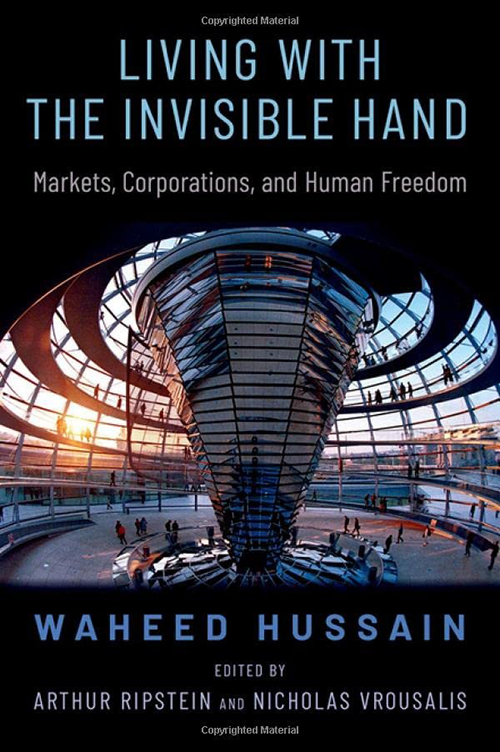When the moral and political philosopher Waheed Hussain prematurely lost his life to cancer in January 2021, he left behind an immense sense of loss — family, friends, colleagues, and students mourned a man of deep insight, fierce engagement, wit, and warmth. He also left behind an unfinished book manuscript, eight chapters of a work that encapsulated his principal concerns with the capitalist market system — and his cooperative solution to them.
Now, thanks to the diligent editorial efforts of two colleagues — University Professor Arthur Ripstein, who teaches in the Faculty of Law and the Department of Philosophy in the Faculty of Arts & Science at the University of Toronto, and Nicholas Vrousalis, an associate professor in practical philosophy at Erasmus University Rotterdam — Hussain’s Living with the Invisible Hand: Markets, Corporations, and Human Freedom has been posthumously published by Oxford University Press.

The book takes an original and provocative view of market society: it acknowledges the benefits of markets in liberating individuals from the direct bondage of the feudal system, but it also homes in on the relations of authority markets form due to their systemic nature.
In the publisher’s words, Hussain “shows that a better way to think about the invisible hand [of the market] is as a mechanism that drops each of us into a maze whose design is opaque to us,” subordinating us “to an arbitrary authority.” For Hussain, that authority resides in the ways in which the market shapes the options available to its participants, undercutting the fundamental human freedom to make real choices.
Living with the Invisible Hand offers solutions based in cooperation, and Ripstein feels certain the volume “will make a significant contribution to debates in political philosophy and debates about market society for years to come.” He adds, “It would have compounded the tragedy of Waheed’s death to have it also mean that this outstanding work did not make it into print.”
Shortly before his death, Hussain had reached out to Vrousalis about the completion of the project and expressed the desire for Ripstein’s involvement as well. Ripstein and Hussain had in fact been discussing many of the ideas that informed the book since the latter’s days as a graduate student at Harvard, and Ripstein chaired the Graduate Department of Philosophy when Hussain was hired at U of T in 2014.
The two editors found seven of the manuscript’s eight chapters in near complete condition, making work on them relatively straightforward. Finishing the final chapter, however, the one that pulled the tome’s disparate arguments together, proved more of a challenge.

Says Ripstein of the process: “Our aim as editors was to use Waheed’s own words as much as possible. We adopted the strategy of reading through multiple different draft versions of both the book and some talks he had given, his handwritten notes on several printouts of the manuscript, and so on.” These materials allowed Vrousalis and Ripstein to construct an outline of the last chapter, which they then variously cross-referenced with other writings by Hussain to land on a final version of the book’s closing segment.
Despite Hussain’s “clear and beautiful prose,” Ripstein — a prolific author used to working on several projects at once — found reviewing his friend and colleague’s manuscript more challenging than anticipated because of the complete immersion it demanded into another’s ideas and modes of argument.
At the same time, Ripstein acknowledges the considerable secondary effect of his and Vrousalis’s editorial work: “Those of us who had the privilege of having Waheed as a friend knew how important philosophy was to his life and conception of himself. The ability to immerse ourselves fully into his thought was an important part of grieving for our personal as well as intellectual loss.”
The Department of Philosophy and the Centre for Ethics will be celebrating Hussain’s life and legacy with a book launch of Living with the Invisible Hand on October 26 and October 27, 2023.

